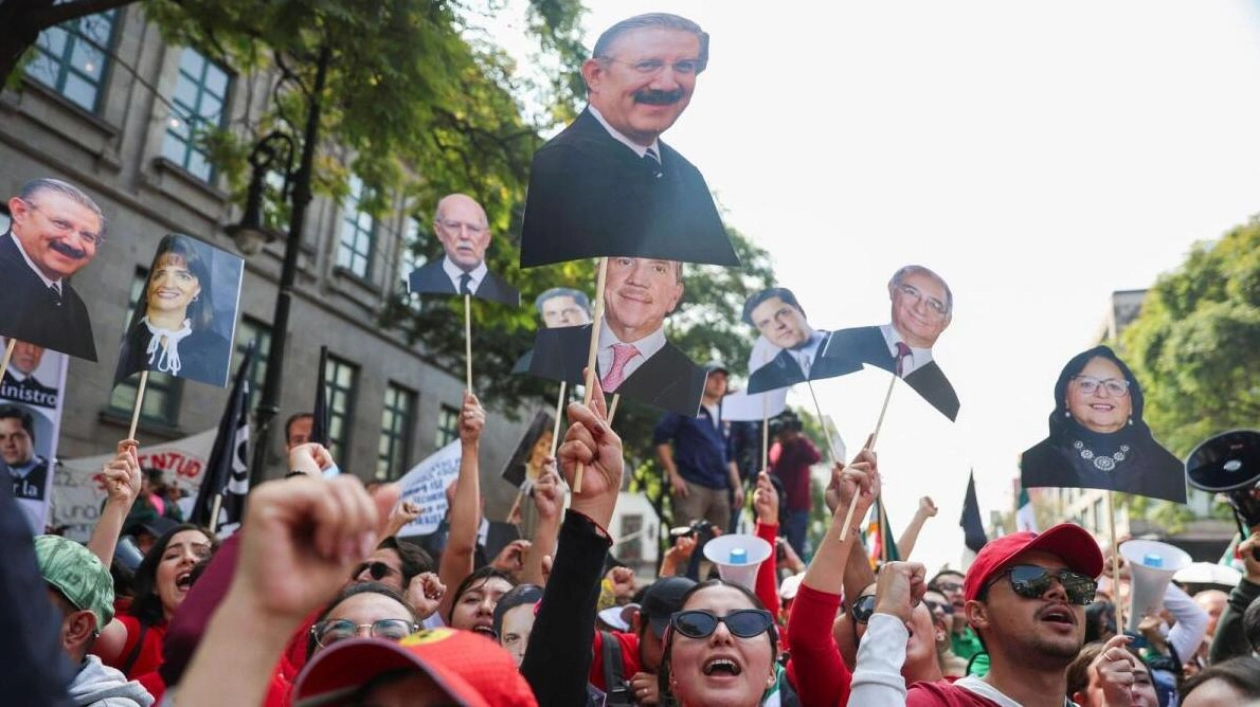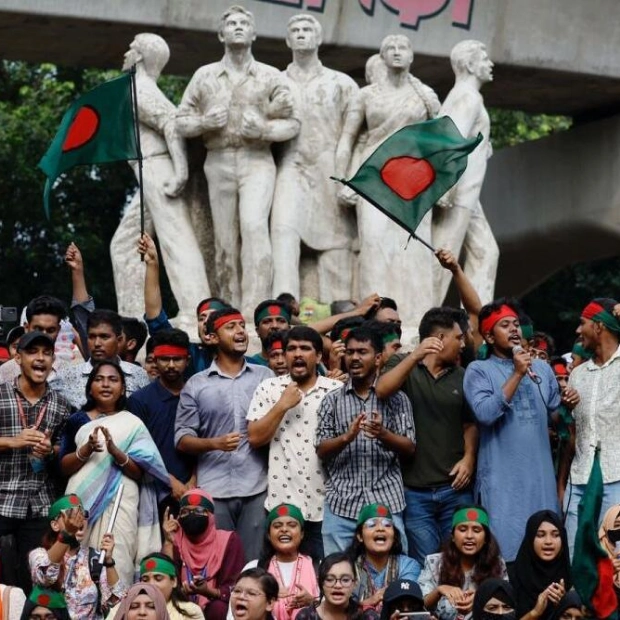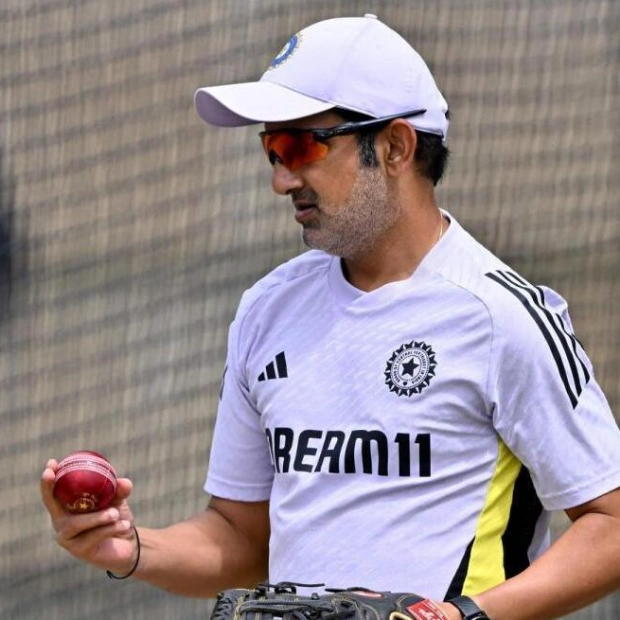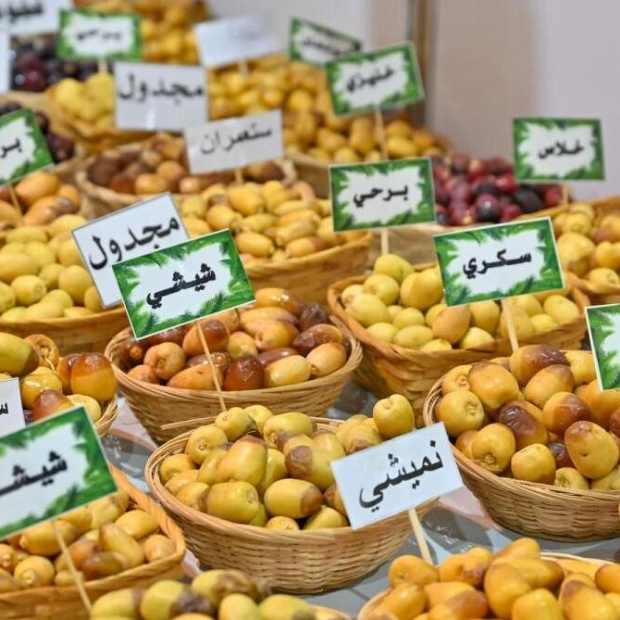People held photographs of the Supreme Court justices during a protest earlier this month against a judicial reform that has already been enacted into law, requiring all judges to be elected by popular vote over the next few years. Mexico's Supreme Court is currently debating the constitutionality of this judicial overhaul.
Judicial workers and members of civil society protested in front of the Supreme Court against the controversial judicial reform in Mexico City earlier this November 5, 2024. On Tuesday, Mexico's Supreme Court will consider partially invalidating the election of judges by popular vote, potentially setting the stage for a standoff with President Claudia Sheinbaum, who asserts that the contentious reforms are irreversible.
More than 34,000 people have registered as candidates for 881 posts in elections next year, which will make Mexico the first country to choose all its judges, at every level, by popular vote, according to data released on Monday. This move has sparked street protests and diplomatic tensions, prompting eight of the country's 11 Supreme Court justices—including its president—to rule themselves out of consideration for the first election round next year.
Critics fear that elected judges could be swayed by politics and be susceptible to pressure from drug cartels, which use bribery and intimidation to influence officials. President Claudia Sheinbaum praised the response to the call for candidates, which closed over the weekend, as "historic." The change was initiated by her predecessor, Andres Manuel Lopez Obrador, and enacted before he left office. He argued that the move was necessary to clean up a "rotten" judiciary serving the interests of the political and economic elite.
This reform sparked diplomatic friction with economic partners the United States and Canada, upset financial markets, and prompted a series of protests by judicial workers and other opponents. Officials reported Monday that there were 480 candidates for nine posts on the Supreme Court. As part of the reform, the court will have two fewer judges. During his six years in office, Lopez Obrador frequently criticized the Supreme Court, which impeded some of his policy initiatives in areas such as energy and security. Washington has warned that the reforms threaten a relationship that relies on investor confidence in the Mexican legal framework.
The first election for 881 judges is scheduled for June 1 next year, following a vetting process. Another round will take place in 2027.
Source link: https://www.khaleejtimes.com






